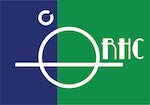Register Holland (RH) opened its office in 1983 in response to the clear need for a classification society with specialist expertise in tall ships and historic ships. Initially its work was concentrated in the Dutch inland charter fleet, most of which operates from the port of Enkhuizen where RH had its office. In 2018 Register Holland Classebureau Zeevaart B.V. (RHC) is recognized by the Dutch Authority and currently classifies some 65 seagoing ships, including the rigging of the barque Europa and the ship Stad Amsterdam, which operate in all the world’s oceans and to Antarctica.
With its wealth of expertise, especially in old, riveted hulls and all aspects of rigging, the competence of RHC extends also to static vessels such as HMS Victory at Portsmouth and other non-seagoing museum ships. Because they fall outside the normal maritime safety regimes of vessels in regular trade, such ships and especially their rigging may not be acceptable to the larger ship classification societies. RHC can offer inspection services tailored to the particular needs of museum ships.
In 2009 a close cooperation was begun with HMS Victory in Portsmouth. As a first step a RHC senior surveyor surveyed the whole rigging to check the maintenance situation. This resulted in an extended report and a series of recommendations. The auditing of a maintenance system and the certification of the rigging will be the next steps.
RHC surveyors are thoroughly experienced in the characteristics of various rigging materials in dynamic and static environments, and in the onerous requirements of ensuring safe public access. When they are permanently dry-docked, ships lose the ability to roll and pitch in response to sudden wind pressure, and in these circumstances their standing rigging undergoes extra pressures. On these and similar hazards, RHC can offer the benefit of its wide experience.
The masts and spars of museum ships are potentially at risk from long periods of inactivity. When re-rigging such vessels, it is important to analyse in advance precisely what is required of the new rigging, and how far this diverges from its corresponding role in an operational vessel. It may be possible to dispense with some of the running rigging without adversely affecting the appearance. Some man-made fibres fail after prolonged exposure to ultra-violet radiation.
Others are significantly more elastic than their naturalfibre counterparts, and carry the risk of stretching under load to the extent that the masts they support may bend and break. RHC surveyors are experienced in such aspects of maintaining and restoring preserved ships. RHC can assess the quality of a naval architect’s design by analysing precisely the performance which each item of rigging must deliver, and advising on which material, and in which dimensions, will best fit those needs without sacrificing a historically authentic appearance for the ship as a whole. It can take account of the requirements of grant-giving organisations, some of which may impose constraints on sourcing materials to comply with environmental or ethical controls. RHC is thoroughly experienced in all aspects of historic ship preservation, and its surveyors follow closely the latest developments of safety legislation throughout Europe.
RHC has an experienced team of surveyors thoroughly qualified to examine all aspects of safety in museum ships and especially above decks. In consultation with our customers, RHC can provide a regular re-inspection schedule to ensure that certification continues to meet current requirements. This can help to reduce annual insurance quotations, and provide evidence that all necessary precautions have been taken in the unfortunate event that a public liability claim is brought against the custodians of the ship. Furthermore, a well designed and maintained rig will be one of the eye catchers of a static museum ship and it will certainly help to please a great number of visitors. RHC is a recognized national classification society in the Netherlands and surveys on the basis of its own classification rules (including special rigging rules) and Dutch statutory rules. RHC normally starts with a quick scan at a general rate of € 165 per hour (2023), excluding (travel) expenses and VAT. For a more detailed survey, we will offer a quotation before proceeding.
